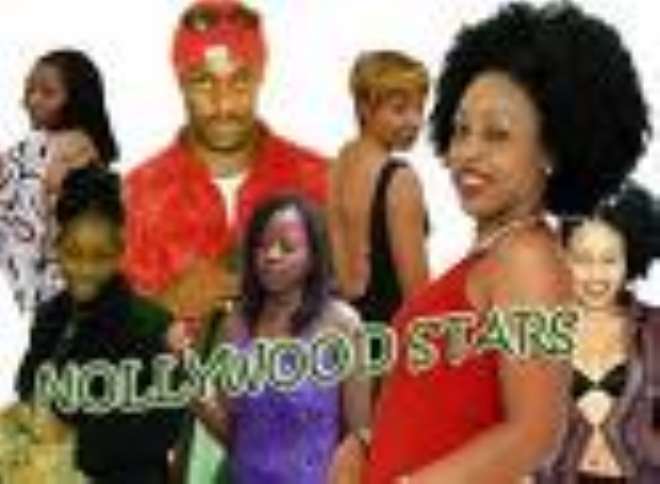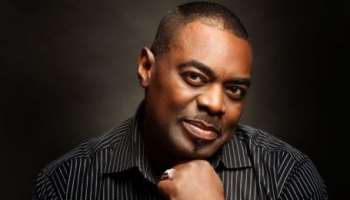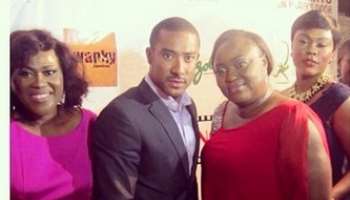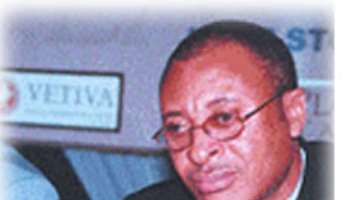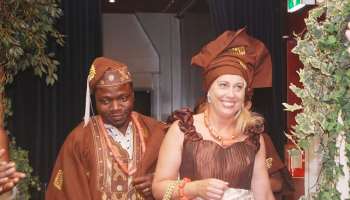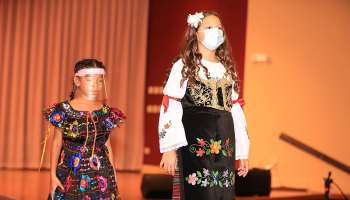NOLLYWOOD IN RETROSPECT
The cinema of Nigeria is a developing industry that has become increasingly productive in recent years. Although Nigerian films have been produced since the 1960s, the rise of digital cinema has resulted in a growing video film industry. The Nigerian video feature film industry is sometimes colloquially known as Nollywood. The term is of uncertain date and origin, but is derived from Hollywood in the same manner as Bollywood. According to Hala Gorani and Jeff Koinange formerly of CNN, Nigeria has a multi-billion dollar movie industry, churning out some 200 "home videos" every month to become the third largest in the world after the United States and India. Many foreign and local critics have criticised Nollywood for its trite plots, poor dialogue, terrible sound, and poor production values. Some worry that the prevalence of witchcraft and violence in the movies may encourage negative stereotypes about Africans. In just 13 years, Nollywood has grown from nothing into an industry that employs thousands of people.
The first Nigerian films were made by filmmakers such as Ola Balogun and Hubert Ogunde in the 1960s, but they were frustrated by the high cost of film production. However, television broadcasting in Nigeria began in the 1960s and received much government support in its early years. By the mid-1980s every state had its own broadcasting station. Law limited foreign television content so producers in Lagos began televising local popular theater productions. Many of these were circulated on video as well, and a small scale informal video movie trade developed. Nigerian film is thus a video movie industry; Nigerians call them 'home videos'. There is some debate concerning what caused this small local market in videos to explode into a booming industry that has pushed foreign media off the shelves in much of Africa and is now marketed all over the world. Use of English rather than local languages served to expand the market. Aggressive marketing using posters, trailers, and television advertising also played a role in nollywood's success. Many point to the 1992 release of Living in Bondage, a film about a businessman whose dealings with a money cult, result, in the death of his wife, as the industry's first blockbuster. Since then, thousands of movies have been released. One of the first Nigerian movie to reach international fame was the 2003 release of Osuofia In London, starring Nkem Owoh, the famous Nigerian comedy actor. Modern Nigerian cinema's most prolific personality is Chico Ejiro, who directed over 80 films in a 5-year period and brags that he can complete production on a movie in as little as three days. Ejiro's brother, Zeb, is the best-known director of these videos outside of the country.
The first nollywood films were produced with traditional analog video, such as Betacam SP, but today all nollywood movies are produced using digital video technology. A March 2006 article in The Guardian cites Nigeria's film industry as the third largest in the world in terms of earnings. The paper cites unknown sources estimating the industry to bring in $200 million US per year.
Production
Nollywood has one studio, Studio Tinapa in Tinapa, Calabar. Most movies, however, are not produced in studios in the Hollywood style. Video movies are shot on location all over Nigeria with distinct regional variations between the northern movies (made primarily in the Hausa language), the western Yoruba-language movies, the Igbo movies shot in the southeast,(Benin City) Edo language shot in Benin city and the popular English-language productions, also shot primarily in the southeast. Many of the big producers have offices in Surulere, Lagos.
Nigerian directors adopt new technologies as soon as they become affordable. Bulky videotape cameras gave way to their digital descendents, which are now being replaced by HD cameras. Editing, music, and other post-production work is done with common computer-based systems.
Distribution
The primary distribution centers are Idumota market on Lagos island, and Onitsha in Anambra State. Currently, Nigerian films outsell Hollywood films in Nigeria and many other African countries. Some 300 producers churn out movies at an astonishing rate somewhere between 1,000 and 2,000 a year. The films go straight to DVD and VCD discs. Thirty new titles are delivered to Nigerian shops and market stalls every week, where an average film sells 50,000 copies. A hit may sell several hundred thousand. Discs sell for two dollars each, making them affordable for most Nigerians and providing astounding returns for the producers.
Nigerian video movies are available in even the most remote areas of the continent. The last few years have seen the growing popularity of Nollywood films among Africans in diaspora in both Europe and North America.
The British board said the Nigeria movies imported into the UK are illegal because they didn't go through the British Censor Board, so all stores selling African movies are doing this illegally can be charged under the British law.
Nigerian films are currently receiving wider distribution as Nigerian producers and directors are attending more internationally acclaimed film festivals.
Themes
Many nollywood movies have themes that deal with the moral dilemmas facing modern Africans. Some movies promote the Christian or Islamic faiths, and some movies are overtly evangelical. Others, however, address questions of religious diversity, such as the popular film Not Without My Daughter, about a Muslim man and a Christian woman who want to marry but go through many obstacles.
Many of Nollywood films deal with AIDS, corruption, women's rights, and other topics of concern to ordinary Africans.
Portrayal In The Media
Nollywood was profiled in the 2007 documentary Welcome to Nollywood by director, Jamie Meltzer. The film gives an overview of the industry, paying particular attention to directors Izu Ojukwu and Chico Ejiro, and acknowledging both the unusual, rapid and enterprising way that most Nollywood films are created as well as its significance and contribution to the greater society.
Notable Nollywood actors and actress
• Omotola Jalade
• Justice Esiri
• Jim Iyke
• Ini Edo
• Pete Edochie
• Rita Dominic
• Omotola Jalade Ekeinde
• Desmond Elliot
• Chioma Chukwuka
•Stella Damasus-Aboderin
•Richard Mofe Damijo
• Kate Henshaw-Nuttal
• Osita Iheme
• Chinedu Ikedieze
•Kanayo O. Kanayo
• Jide Kosoko
•Genevieve Nnaji
•Ramsey
Tokunbo Nouah Jr.
• Oge Okoye
• Zack Orji
• Nkem Owoh etc.
Latest News
-
 Dr Roy Accuses Mercy Chinwo Of Not Assisting Him W
Dr Roy Accuses Mercy Chinwo Of Not Assisting Him W -
 Daniel Regha Rates Dizzy's New Album
Daniel Regha Rates Dizzy's New Album -
 BB Naija's Phyna Bemoans Big Brother Naija Sponso
BB Naija's Phyna Bemoans Big Brother Naija Sponso -
 “I've Decided To Quit Music” — Rapper Vic O
“I've Decided To Quit Music” — Rapper Vic O -
 Burna Boy Made Life Performance Enjoyable - Ruger
Burna Boy Made Life Performance Enjoyable - Ruger -
 “Quit Smoking Today" - TG Omori
“Quit Smoking Today" - TG Omori -
 Davido Announces Partnership With UnitedMasters In
Davido Announces Partnership With UnitedMasters In -
 Dj Azonto Claims He Was Given £100,000 To Perform
Dj Azonto Claims He Was Given £100,000 To Perform -
 Mayorkun Brutally Reacts To Influencer’s Ritual A
Mayorkun Brutally Reacts To Influencer’s Ritual A -
 “The Queen Of Herself" : Portable Admonishes Wife,
“The Queen Of Herself" : Portable Admonishes Wife,


